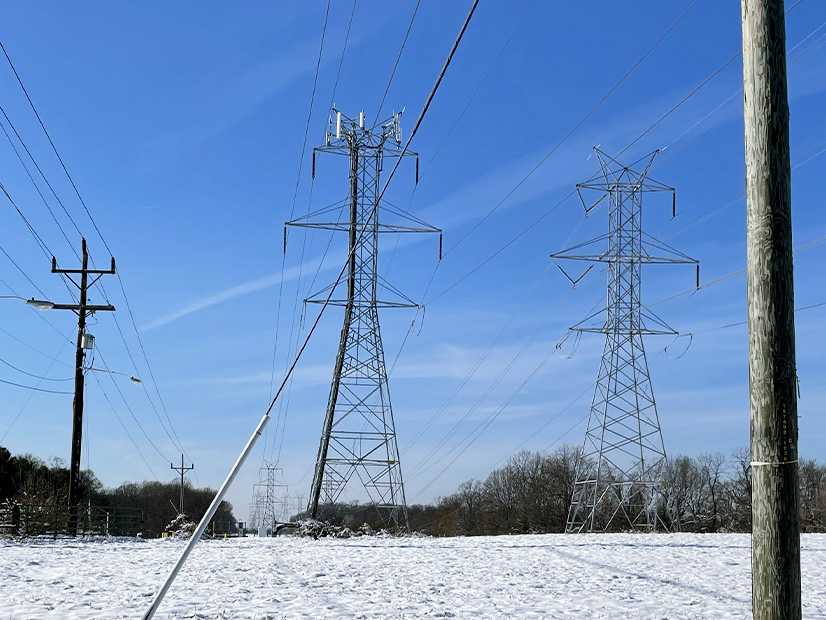In comments submitted to FERC on April 4, NERC pushed back on the ISO/RTO Council’s objections to its proposed cold weather standard, urging the commission to deny the IRC’s “extraordinary requests” and approve the standard “without further delay.”
EOP-012-2 (Extreme cold weather preparedness and operations) is under consideration by FERC, having been submitted by NERC on Feb. 16 after its approval by the ERO’s Board of Trustees (RD24-5). If approved, it will replace EOP-012-1, which FERC approved in 2023 with the caveat that NERC must submit a successor within a year to address numerous “undefined terms, broad limitations, exceptions and exemptions, and prolonged compliance periods” before the standard takes effect in October. (See FERC Orders New Reliability Standards in Response to Uri.)
The IRC submitted a petition March 21 expressing its members’ “united opposition” to approving the standard as currently written. Despite expressing support for the prevention of cold weather-related outages such as those experienced during winter storms Elliott and Uri, the IRC said the ERO’s standard drafting team had left its “most significant concerns … unaddressed” and approving the standard could lead to more reliability issues, additional work for FERC, and great costs for generator owners and the public.
It asked the commission to remand the standard to NERC and direct the ERO to submit revisions addressing the IRC’s issues within 120 days. (See IRC Urges FERC to Remand NERC Cold Weather Standard.)
IRC Called Standard Too Generous
In its filing, NERC summarized each of the IRC’s objections and explained why they did not justify remanding the standard.
A common theme expressed by the IRC was that the proposed standard gave too much latitude to industry on its implementation, which could create auditing difficulties. For example, the standard would specify that freeze protection measures would not “be limited to optimum practices, methods or technologies,” but could include measures “generally implemented … in areas that experience similar weather conditions.” The IRC suggested revising the standard to require measures “that would reasonably be expected to result in effective … performance.”
Another concern the IRC identified was that GOs could claim an exemption to implementing some freeze protection measures if doing so would “require prohibitively expensive modifications or significant expenditures on equipment with minimal remaining life.” The council said cost issues were outside the scope of reliability standards and the proposed requirement could “invite a ‘race to the bottom’ as [GOs] face economic incentives to keep their compliance costs lower than those of their competitors.”
NERC said in its response that while the standard drafting team’s priority was to “provide a high bar for generators that operate in cold weather,” members had to balance this with concerns that high costs or technical limitations might cause generators to choose not to operate in cold weather, leading to increased reliability risks. The SDT also felt that GOs should neither be required to adopt “unproven technologies” nor discouraged from implementing “new freeze protection methods as they are developed.”
“The commission is not being asked in this proceeding to choose among the ‘best’ or most just and reasonable of all potential options, only to assess whether NERC’s proposed definition is just and reasonable,” NERC said.
The IRC also objected to excluding generators that do not normally operate in freezing conditions from implementing freeze protection measures, arguing that they may be called on to operate during emergency situations, including in cold weather. It asked FERC to order that all units “that may be committed to operate” in freezing temperatures be required to use freeze protection measures.
NERC replied that “avoiding undue burden on those generating units that are not expected to operate in cold weather,” even though they may be needed in an emergency, is “a fundamental premise of the EOP-012 standard.” The ERO further observed that FERC’s directive approving EOP-012-1 and ordering a new standard specifically quoted the language exempting those units not typically used during freezing weather — along with the fact that they could be used in emergency conditions — and did not demand any changes to it.
In addition, the IRC criticized NERC on the time provided for freeze protection measures’ implementation in EOP-012-2— which the IRC wanted to shorten from as little as 24 months to a minimum of 12 months — and for required inspections and maintenance, for which the standard does not provide a time requirement.
NERC said the freeze protection implementation timelines provided are “based on a reasonable and measured consideration of all relevant factors” and that shortening the default timelines could result in additional administrative burdens from entities requesting deadline extensions. The ERO also asked that FERC delay any move to require specific timelines on inspection and maintenance until data is available on the standard’s overall effectiveness.
“Should NERC’s experience monitoring the implementation of the standard provide factual support for revising the standard, NERC will promptly initiate its standard development process to make any needed changes and to use all the reliability authorities at its disposal to ensure reliability in the interim,” NERC said. “In the interest of reliability, however, entities must begin to implement the important protections this standard will provide without further delay.”




